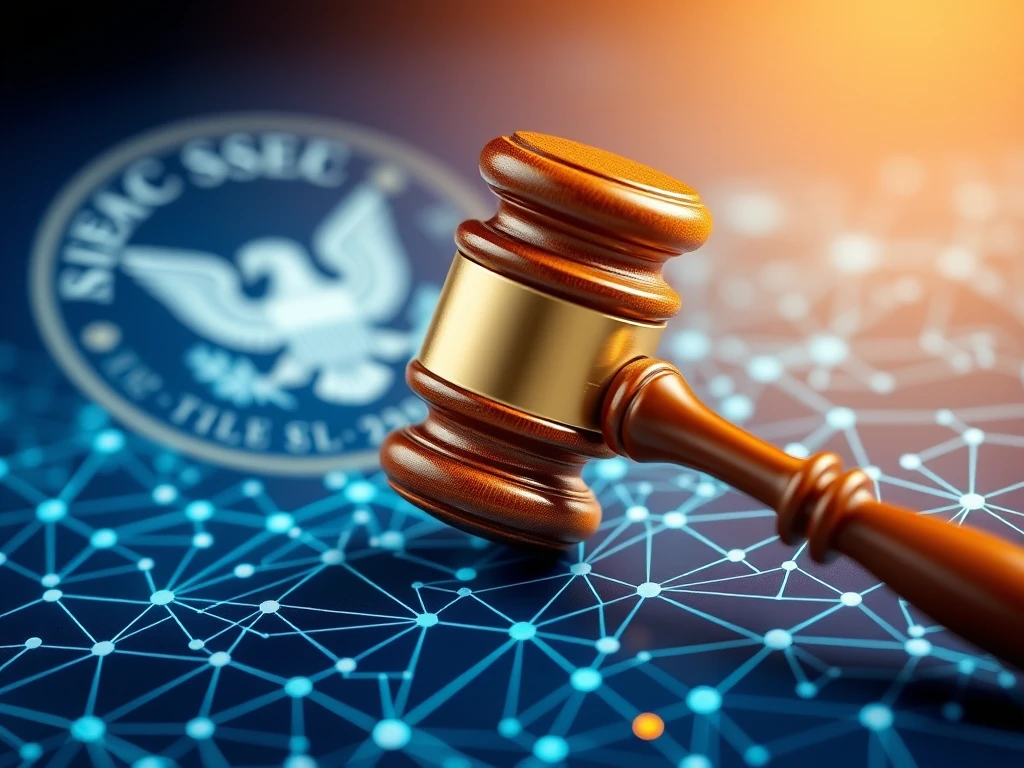Regulatory Capture Debunked: Attorney’s Reassuring Take on Crypto Industry

Is the cryptocurrency industry truly succumbing to regulatory capture, a situation where regulatory bodies are unduly influenced by the industries they are meant to oversee? Concerns have been mounting as crypto becomes increasingly intertwined with traditional finance. However, a prominent attorney argues against this notion, offering a reassuring perspective on the current regulatory landscape.
Attorney Asserts Crypto Industry is Not Under Regulatory Capture
Brandon Ferrick, General Counsel at Douro Labs, recently shared his insights, suggesting that the crypto space is not yet experiencing regulatory capture. Speaking with Crypto News Insights, Ferrick pointed to the Securities and Exchange Commission’s (SEC) proactive approach to public engagement as a key indicator. He emphasized that transparency, open panel hearings, and opportunities for public input are vital signs of a healthy regulatory environment, directly countering the idea of undue industry influence.
What Signals Regulatory Capture?
To understand Ferrick’s viewpoint, it’s crucial to grasp what regulatory capture actually looks like. He outlined several red flags that would suggest its presence:
- The Revolving Door Phenomenon: This involves a constant flow of individuals moving between public sector regulatory roles and private sector industry positions. Such movement can create conflicts of interest and potentially lead to biased regulatory decisions.
- Echo Chamber at Regulatory Events: If the same select group of individuals and companies are consistently present at regulatory discussions and events, it might suggest a lack of diverse perspectives and potential undue influence from this inner circle.
- Preferential Treatment: When certain cryptocurrency projects or companies receive special treatment or exemptions from regulations, it raises concerns about fairness and whether the regulatory playing field is truly level.
SEC’s Openness Counters Regulatory Capture Concerns
Despite these potential warning signs, Ferrick believes the current actions of regulatory bodies like the SEC paint a different picture. He highlighted the SEC’s commitment to public discourse and engagement as a strong counter-argument to the regulatory capture narrative.
“The reason why I am not worried today is that a lot of what you’re seeing from the regulatory side, like the SEC, for example, is totally open, public, and there are available opportunities to have conversations with the regulators about changing or thinking about the regulatory structures,” Ferrick stated.
He further elaborated on the SEC’s accessible mechanisms for public participation:
- Public Commentary Portal: The SEC provides a platform where anyone can submit written comments and opinions on proposed crypto regulations. This open channel ensures that diverse voices can be heard and considered.
- Meeting Opportunities: Individuals and organizations can formally request and schedule meetings with SEC officials to discuss their perspectives and concerns regarding crypto regulation. This direct engagement facilitates dialogue and understanding.
The SEC’s proactive approach, marked by roundtable discussions and panels, stands in stark contrast to its previous “regulation-by-enforcement” strategy under former Chairman Gary Gensler. This shift towards open dialogue is seen as a positive development by many in the crypto industry.
SEC’s Crypto Roundtables: A Step Towards Inclusive Regulation?
The SEC’s recent and planned crypto roundtables exemplify their move towards a more inclusive regulatory process. These events bring together a diverse group of stakeholders, including:
- Crypto Industry Executives: Leaders from various crypto companies provide firsthand insights into the industry’s operations, challenges, and perspectives on regulation.
- SEC Officials: Regulators themselves participate, directly engaging with industry players and the broader public.
- Crypto Industry Critics: Including figures like former SEC official John Reed Stark, who often voice skepticism and concerns about the crypto space, ensuring a balanced discussion.
The roundtable discussions cover a range of critical topics. The inaugural March 2025 roundtable focused on cohesive crypto regulation, while subsequent sessions delved into specific areas like trading rules (April 11) and custody guidelines (April 25). This structured approach indicates a serious effort to gather comprehensive input before solidifying regulatory frameworks.
A Balanced Perspective on Crypto Regulation
While concerns about regulatory capture remain valid in any industry interacting with government bodies, Ferrick’s analysis offers a more optimistic outlook for the cryptocurrency sector. The SEC’s demonstrated commitment to transparency, public input, and open dialogue through roundtables and accessible communication channels suggests a regulatory environment that, at least for now, is actively seeking diverse perspectives and resisting undue influence. This is a crucial development for the maturing crypto industry as it navigates the complexities of regulatory compliance and strives for sustainable growth.









